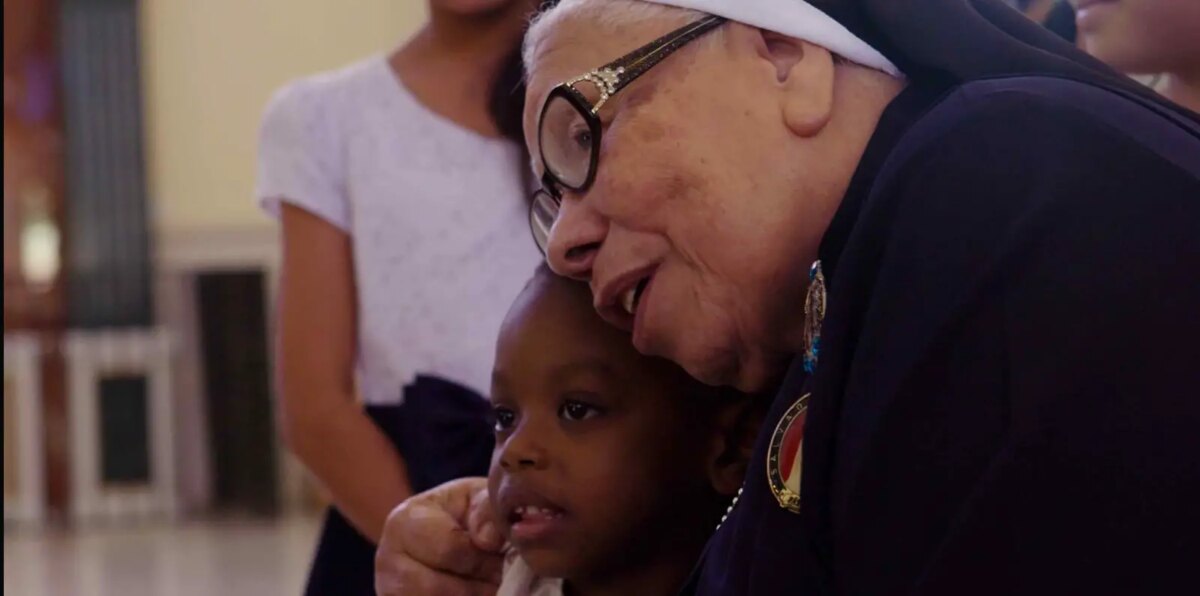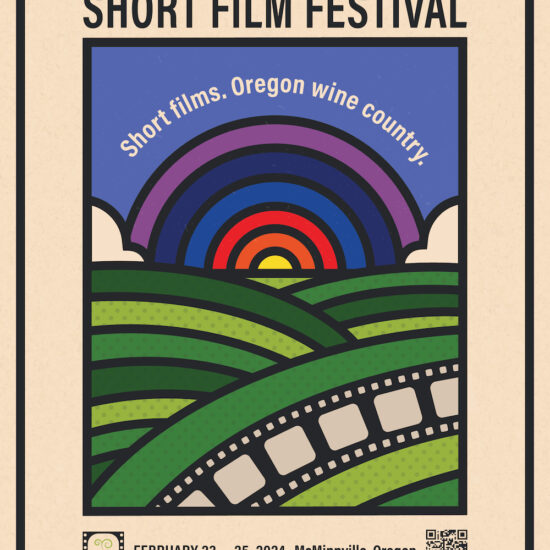
With This Light is an emotionally powerful, fascinating, and sometimes downright devastating look at the truly incredible life and work of the late Sister María Rosa Leggol, a Honduran nun who devoted her whole life to helping children escape poverty.
Directors Nicole Bernardi-Reis and Laura Bermúdez begin their documentary with a brief voiceover and some archival footage of their subject. Sister María Rosa briefly explains some of the dire troubles facing youth in Honduras today. She is an immediately compelling subject; from her first moments on screen, she comes across as a compelling and passionate speaker. The film then alternates between in-depth interviews with María Rosa, footage of the programs she helped start, and the stories of two teenagers (coincidentally named María and Rosa) currently being assisted by these programs. Given the relatively wide scope of subjects, With This Light can definitely feel a bit disorganized and overstuffed at times. Still, the stories we see and the people we meet are engaging enough that it more than makes up for this apparent aimlessness.
“…a Honduran nun who devoted her whole life to helping children escape poverty.”
As we learn María Rosa’s story of growing up as an orphan before becoming a nun and starting her wide-reaching network of charitable homes and programs, we also see the huge impact that these programs have on the lives of the young people they service. María is a 14-year-old girl who is traumatized by domestic and sexual violence and has entered an abusive relationship with an older boy named Alfredo. Especially for her age, María speaks with a truly incredible vulnerability, and the camera is granted immense access to her life. We see her in class, and we see her and Alfredo in free couples counseling provided by the group home that Sister María Rosa established.
Rosa is a slightly older teenage girl who is also deeply traumatized from childhood abuse. The film definitely focuses a bit less on Rosa, but we also learn about her dreams of going to college, and it is absolutely crushing when she finds out that she has not passed the college entry exams. As captivating and important as these stories are, I must admit that specific sequences brought up very troubling questions about the ethics of some of the filmmaking. For example, at one point, we witness one of the young girls tell her doctor about being molested by a close family member. Being privy to such an intimate conversation felt somehow voyeuristic and wrong, but it does not take away from the power of the rest of the film.
Aside from ethical questions, the film also fails to provide any real historical or political context in Honduras. While we hear about and see the effects of poverty, violence, and misogyny in the country, events such as the 2009 coup or the migrant crisis are totally ignored, leaving the viewer uninformed about the setting as a whole. Even so, With This Light is a very well-made piece of documentary filmmaking that tells an essential and underrecognized story. Furthermore, the film gives a powerful voice to subjects who are almost always portrayed as faceless and nameless statistics. With This Light ends with a touching tribute to Sister María Rosa in the form of a slideshow that shows several of the (now grown) children who went through Sister María Rosa’s homes and did great things in life. Like the rest of the documentary, this ending felt like a perfectly fitting tribute to an incredible human being whose work has remained mostly unsung.














